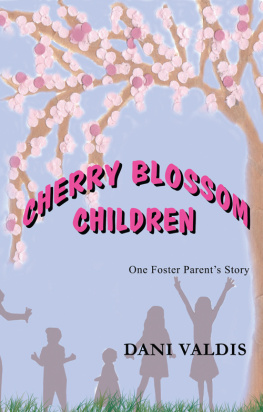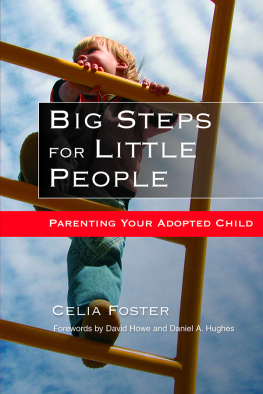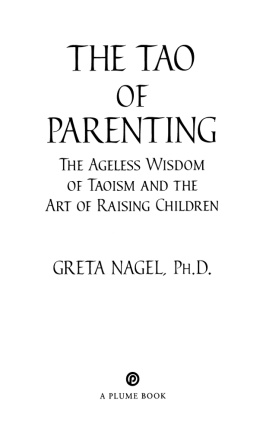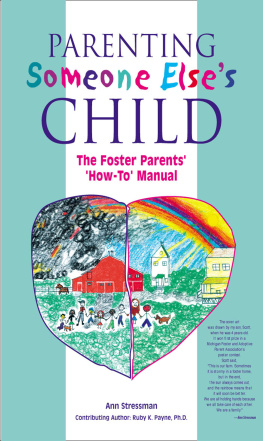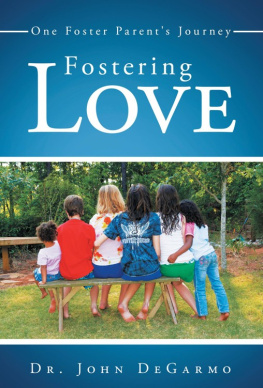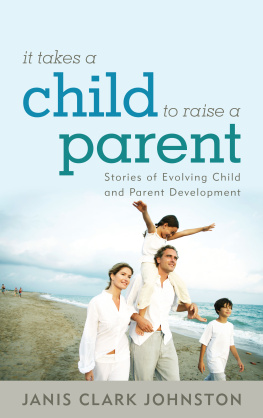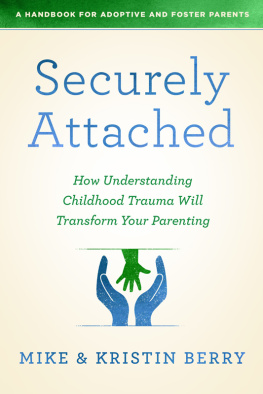
This book is non-fiction and is based on the authors experience. The events recounted are true. The names of all individuals have been changed to protect the identities and privacy of all characters.
Lifes Gift
Many years ago as a student nurse I had the privilege of caring for a young boy, Gary, who unfortunately had a terminal condition. I became quite close to Gary and his family and though his death left me with a devastating emptiness, his journey towards that day was filled with a great deal of happiness and joy as his zest for living and ability to make others smile was wholly uplifting. In 2011 I found myself needing to search for the only photograph I had of him, this search became a week long drive of determination to find that photograph. During my search I discovered all the memorabilia and information that I had saved over the years about the children we had fostered. None should be forgotten. I hope this book encourages others to help and support other children. All children are inspirational so I hope that readers of this book will be inspired by and give inspiration to the children in their lives. Thank you Gary for my journey, you and many other children gave me the inspiration I needed.
Dedication
I wish to dedicate this book to two very influential people in my life, who, for very different reasons and through completely differing channels, have brought life and meaning, as well as understanding to the purpose of sharing our family experiences with others.
Jake- a special young man, who could be described as being small but power packed. His influence on our family had a huge impact, as I am sure it did to the lives of many others he met throughout his short life.
My thanks also go to Janet Simpson who provided me with the channel of insight, the encouragement to continue writing, and the patience of a saint, as I relived our family experience as each chapter emerged in print. I am forever indebted to you both.
Contents
Acknowledgements
I would like to offer my sincere thanks to all those wonderful people who gave me the confidence to complete this book. My very patient family, who gave me the time to write and faced their experiences of our life together. My husband, who painstakingly vetted this book as well as tolerating my determination to write it! I would also like to thank all of those who offered to read the manuscript to give me their true opinions with direct honesty and criticism. Finally, I would like to thank every child that joined our family throughout our fostering years for the life and laughter they gave to us.
Foreword
How many children do you have?
A straightforward question that is usually responded to in a straightforward way. I for example would answer Two, a girl and a boy.
The author however looks at you, smiles and then explains.
This is her story, the struggles, the highs, the lows, the tears, the laughs, the parties, Christmases and the achievement of her dream.
Believe me when I say that this could only have been achieved by a very special person and her remarkable family, so if you are considering fostering or adopting this is a MUST read for you. It will prepare you in a way no other book can.
Janet Simpson
C HAPTER 1
Decisions In Life
Very early in life I made two very clear decisions that were to affect my future. My mother would say that I made three! Perhaps she was right given the unfurling of my future. However I might suggest that the third decision was a necessity rather than a planned event based purely on the second major decision! I recall being a rather miserable child, one of six, and if it is possible to be the middle one of six, then I held that position. Never considered to be grown up enough to join my older siblings but considered to be too old to be a part of my younger siblings games and activities. But as with all youngsters there were some very simple almost unavoidable events that were to influence the direction my life would take.
I was five years old when I had to go into hospital to have my tonsils and adenoids removed. This was back in 1957 when the norm was for the mother to take the child to the childrens ward at the local hospital and leave them there for the duration, usually a week. During this time the children received no direct contact with their family at all. They were to go through this traumatic experience very much alone, along with their fellow sufferers who were total strangers and the seemingly unsympathetic ward staff. The theory was that the children would be least affected emotionally. How little they knew. I can only recall that experience as a week of unpleasant memories that frightened me, left me fearful of being alone, and never feeling I could trust what adults said. On arrival I was given a bed and a bedside locker, told to say goodbye to my mother with a faint promise by the very strict nurse, who snapped at me, that my mother would collect me in a weeks time only if I was good, did as I was told and stopped crying. This message was given to each child as they watched their mothers leaving and as their tears began to fall. We were all admitted on the same day, operated on the day after and allowed home six days later assuming there were no complications. Shortly after my arrival I needed the toilet, was desperately in need but there was no one to ask. I recall going in search of it, wandered into a room, which must have been the ward sisters office. I heard the distant sound of voices but they were coming in my direction, so I hid behind the door, barely breathing in case they heard me. But my need for the toilet was imperative; my whimpering behind the door could not be held back a moment longer and my hideout was discovered. I was hauled out of my safe haven and told to go back to my bed. I was petrified of the nurse and I am sure she considered me to be the most exasperating and difficult child she had cared for.
Playtime on the ward I cannot recall, however I do remember the nurse (perhaps it was the same one?) trying to teach us to gargle some brightly coloured, awful tasting antiseptic liquid, over the bath. I could not do it to save my life, either before my operation or even worse afterwards. I was told that I would have to stay there forever if I could not do it, as my throat would remain sore forever and my voice would never return to normal! I tried so hard between the tears, but the exceptional sore throat accompanied by the fear of the nurses threats during that time never allowed me to acquire the skill to gargle.
Eventually the day arrived when we could go home, but we had to wait patiently for our mothers to arrive. One by one each child was carried off the ward to be returned to the care of their Mum, to be taken home to their family once again. But I was left behind, I strongly believed now that the nurse had meant what she said after all my voice was still strange sounding and the art of gargling a complete mystery to me. My mother had not arrived and my usual chest heaving wailing began. This caused my nose and throat to bleed, bringing ward sister and doctor to attend to me. They reassured me, held me close, stopped the bleeding and made me feel better; they explained that I could go home when my mother arrived providing I could be happy and the bleeding ceased. I smiled probably for the first time that week. I had discovered that one could feel good when comforted by a stranger, as easily as one could have their feelings and emotions destroyed by the harsh words of a stranger. New children were being admitted for their operations, which began to fill me with doubt about my own position, but eventually towards the evening my mother arrived to take me home. The relief was enormous, but from this point onwards I knew I wanted to be a nurse when I grew up!
Next page
